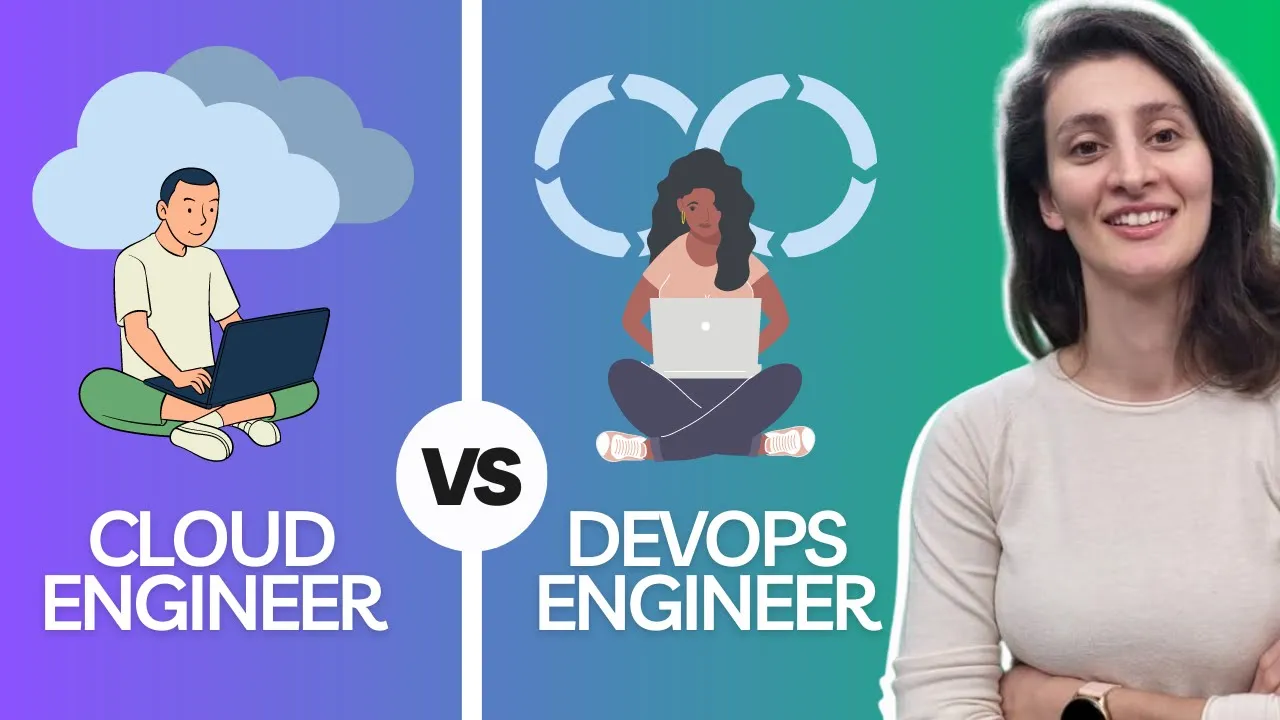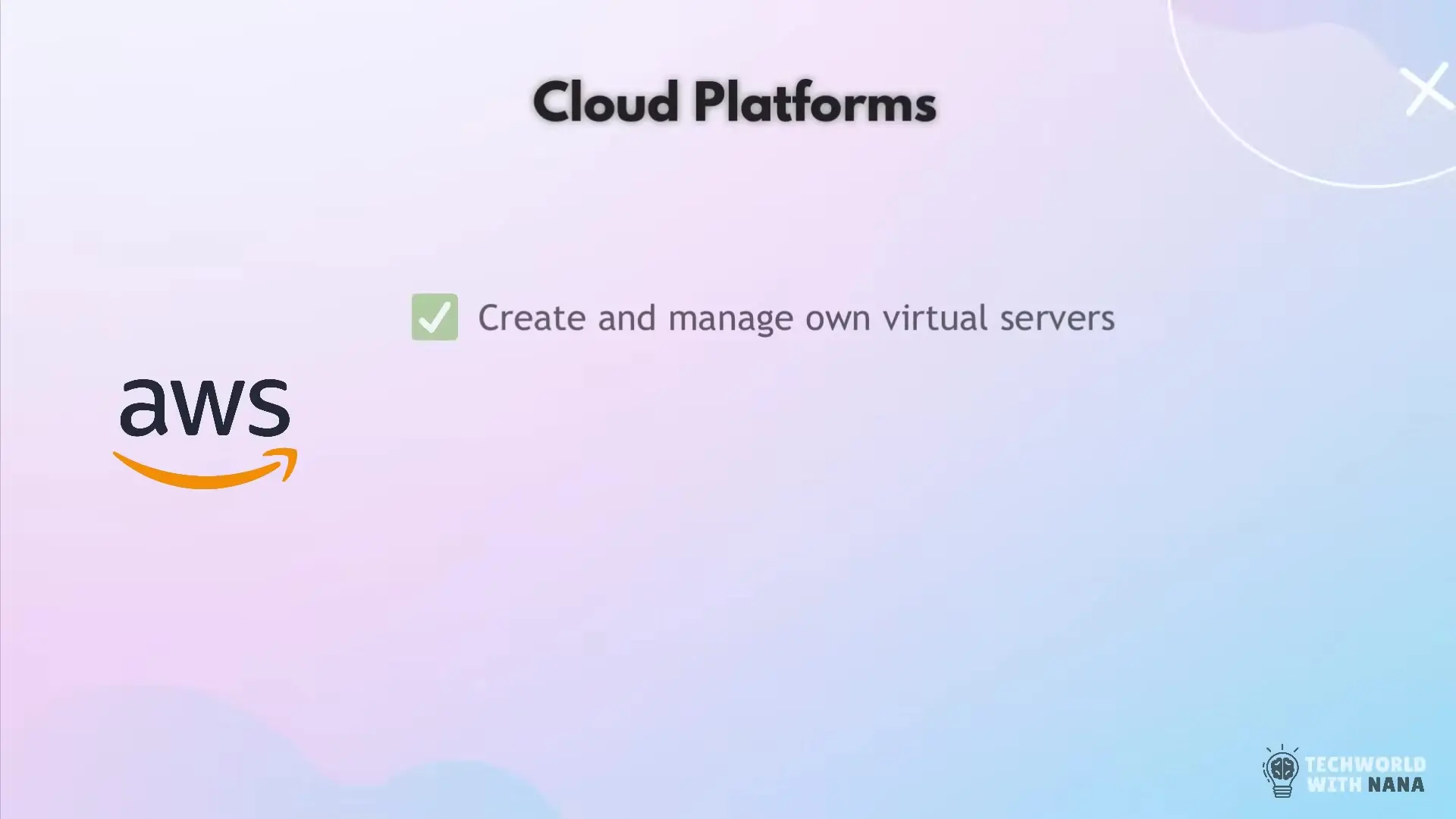
In the rapidly evolving tech landscape, DevOps Engineer and Cloud Engineer have emerged as two of the most in-demand roles. While companies often use these titles interchangeably or even combine them into hybrid positions like "Cloud DevOps Engineer," they are fundamentally different roles with distinct responsibilities and skill sets. This article clarifies the boundaries between these positions to help you understand their unique purposes, overlapping responsibilities, and career implications.
Understanding the Core Purpose of Each Role
Let's start by establishing the primary objective of each role to understand their fundamental differences:
DevOps Engineer: Streamlining Software Delivery
A DevOps Engineer's main objective is to make the software release process fast, efficient, and reliable. They achieve this by automating the entire delivery pipeline, eliminating manual steps that slow down deployment. Their focus is on building systems that enable continuous integration, continuous delivery, and continuous deployment (CI/CD).
It's worth noting that DevOps was originally conceived as a set of principles and practices rather than a specific role. However, the industry has evolved to establish dedicated DevOps Engineer positions, which makes practical sense given the specialized skills required.

Cloud Engineer: Building and Managing Cloud Infrastructure
A Cloud Engineer's primary responsibility is to create and manage infrastructure on cloud platforms that will host applications. They design, implement, and maintain the foundational services that applications run on, ensuring they're reliable, secure, and optimized for performance and cost.
Cloud Engineers typically specialize in specific cloud platforms (AWS, Azure, Google Cloud) because each has unique services, configurations, and best practices. This specialization is why you'll often see job titles like "AWS Cloud Engineer" or "Azure Cloud Engineer."
The Evolution of Cloud Platforms
To understand the Cloud Engineer role better, it's important to recognize how cloud platforms have evolved. What began as simple server rental services has transformed into comprehensive ecosystems offering hundreds of specialized services.
Modern cloud platforms like AWS, Google Cloud, and Azure provide everything from basic compute resources to specialized services for databases, storage, networking, security, machine learning, and more. They offer both infrastructure-as-a-service (IaaS) options where you manage virtual servers yourself, and platform-as-a-service (PaaS) options where the provider handles the underlying infrastructure.

This evolution has created both opportunities and challenges. Companies can now build sophisticated infrastructure without owning physical hardware, but the complexity of cloud platforms requires specialized knowledge to navigate effectively.
Key Responsibilities of a Cloud Engineer
Let's examine what Cloud Engineers actually do with practical examples:
- Designing cloud architecture that aligns with business requirements (e.g., determining whether to use managed services or self-managed infrastructure)
- Implementing and configuring cloud services (compute, storage, networking, databases, etc.)
- Ensuring security through proper access controls, network configurations, and encryption
- Setting up disaster recovery and backup solutions to protect against data loss
- Optimizing for performance, reliability, and cost-efficiency
- Managing cloud resources across multiple geographic regions for global applications
- Creating infrastructure-as-code (IaC) templates to automate resource provisioning
For example, an AWS Cloud Engineer might evaluate whether to use EC2 instances (virtual servers) with a self-managed database cluster or the fully-managed Amazon RDS service for a company's database needs. They would consider factors like required control, maintenance overhead, cost, and performance requirements.

Key Responsibilities of a DevOps Engineer
Now let's look at what DevOps Engineers focus on:
- Building and maintaining CI/CD pipelines for automated testing and deployment
- Implementing infrastructure as code for consistent environments
- Setting up monitoring and logging systems to track application performance
- Creating automated testing frameworks to catch issues early
- Establishing release management processes that reduce risk
- Implementing container orchestration (like Kubernetes) for application deployment
- Collaborating with development teams to improve code delivery workflows
A DevOps Engineer might implement a pipeline that automatically builds code when developers commit changes, runs tests to validate functionality, and deploys successful builds to staging or production environments—all without manual intervention.
Where the Roles Overlap
The confusion between these roles stems from significant overlap in several areas:
- Infrastructure as Code: Both roles commonly use tools like Terraform, CloudFormation, or Pulumi
- Container technologies: Docker and Kubernetes are relevant to both positions
- Automation: Both roles focus heavily on automating manual processes
- Monitoring and logging: Setting up observability tools is important for both roles
- Security implementation: Both need to understand security best practices
This overlap explains why companies sometimes combine these roles, especially in smaller organizations where one person may need to handle both sets of responsibilities.
The Key Differences
Despite the overlaps, these key differences distinguish the roles:
Focus and Expertise
- Cloud Engineers focus on the infrastructure layer and platform-specific services
- DevOps Engineers focus on the software delivery process and developer workflows
Technical Knowledge
- Cloud Engineers need deep knowledge of specific cloud platforms (AWS, Azure, GCP)
- DevOps Engineers need broader knowledge of CI/CD tools, testing frameworks, and deployment strategies
Day-to-Day Activities
- Cloud Engineers spend more time configuring cloud services, optimizing resources, and managing cloud costs
- DevOps Engineers spend more time on pipeline automation, deployment strategies, and improving developer workflows
Career Considerations: Which Path Is Right for You?
When deciding between these career paths, consider:
Cloud Engineer Path
- Best for those interested in infrastructure design and architecture
- Requires specialization in specific cloud platforms
- Often leads to Cloud Architect or Cloud Security Engineer roles
- Certification paths include AWS Certified Solutions Architect, Azure Administrator, or Google Cloud Professional Cloud Architect
DevOps Engineer Path
- Best for those interested in automation and improving software delivery
- Requires broader knowledge across various tools and technologies
- Often leads to Platform Engineer, Site Reliability Engineer (SRE), or DevOps Architect roles
- Certification paths include Certified Kubernetes Administrator, AWS DevOps Engineer, or Azure DevOps Engineer
Salary Comparisons
Both roles command competitive salaries, but there are some differences. According to industry data, Cloud Engineers typically earn slightly less than DevOps Engineers at entry and mid-levels, but Cloud Architects (the senior progression for Cloud Engineers) often earn more than senior DevOps roles. Location, experience, and specific cloud platform expertise significantly impact compensation for both paths.
The Hybrid Role: Cloud DevOps Engineer
Many organizations now advertise for "Cloud DevOps Engineers" who handle both sets of responsibilities. This hybrid role is particularly common in smaller companies that can't afford separate specialists. These positions typically require knowledge of both cloud platforms and CI/CD automation, with the exact balance varying by organization.
Conclusion
While DevOps Engineer and Cloud Engineer roles share many skills and responsibilities, they serve different purposes in an organization. Cloud Engineers focus on building and maintaining the cloud infrastructure that applications run on, while DevOps Engineers focus on streamlining the process of delivering software to that infrastructure.
Understanding these distinctions can help you make informed career choices and help organizations structure their teams more effectively. As cloud technologies continue to evolve, both roles remain critical to modern software development and deployment.
Let's Watch!
DevOps vs Cloud Engineer: Key Differences & Career Paths Explained
Ready to enhance your neural network?
Access our quantum knowledge cores and upgrade your programming abilities.
Initialize Training Sequence